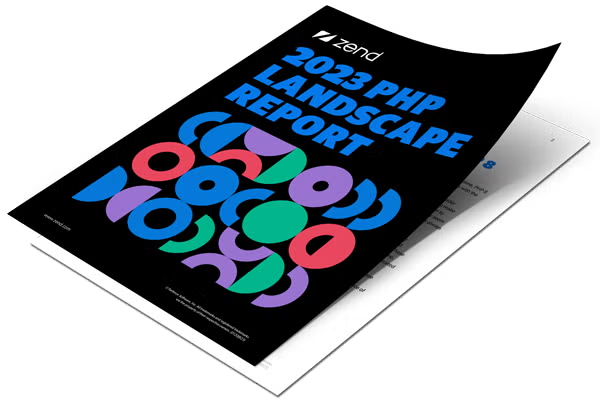PHP powers the digital economy, with millions of websites using PHP as their server-side language of choice. Add to that an estimated 5.5 million PHP developers, and an ever-growing appetite for speedy and secure digital experiences, PHP is poised for yet another banner year in 2023.
But the growth and prosperity of the PHP ecosystem isn’t without its challenges. Among many notable findings, our 2023 PHP Landscape Report found that PHP teams regularly struggle with performance issues, debugging, and keeping pace with PHP upgrades – with the latter being especially prevalent following on the heels of PHP 7.4 end of life in November, 2022.
With so much innovation and progress in the PHP space, and just as many potential pitfalls for teams to avoid, understanding the state of PHP development is more critical than ever.
Editor's Note: The 2025 PHP Landscape Report is now available. Get the latest on the state of PHP by downloading the 2025 edition of the report.
About the Webinar
In this on-demand webinar, Zend Product Manager Matthew Weier O’Phinney discusses the 2023 state of PHP development based on key findings from the Zend 2023 PHP Landscape Report.
Watch the webinar today for data and analysis on:
- The most-used PHP versions, as well as plans and obstacles to upgrading PHP
- PHP containerization, automation, and orchestration trends
- Top development priorities for PHP teams
- Emerging trends teams should watch in 2023
- And more!
Download the Full 2023 PHP Landscape Report
Ready to dive in on the full data and analysis presented in the 2023 PHP Landscape Report? Access your free copy below.
Presenters

Matthew Weier O’Phinney
Matthew Weier O’Phinney is the Principal Product Manager at Perforce Zend and OpenLogic, where he focuses on creating the tools developers need to build and deploy their applications. He is a founding member of the PHP Framework Interop Group (PHP-FIG), which creates and promotes standards for the PHP ecosystem, where he has served two elected terms on the PHP-FIG Core Committee and collaborated on many specifications.
Matthew began developing on Zend Framework (ZF) before its public release, and he led the project for Zend from 2009 through 2019. He acts as the Project Lead for the Laminas Project, which includes the subprojects Laminas API Tools (formerly Apigility) and Mezzio (formerly Expressive). He has contributed to many open source projects and communities, many of which can be found on github and his personal website.
